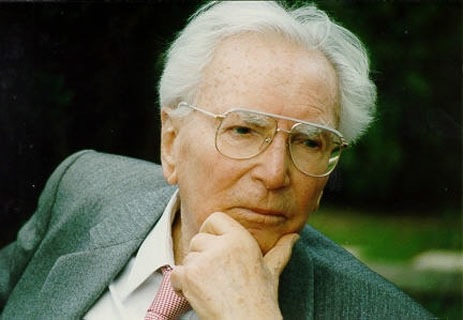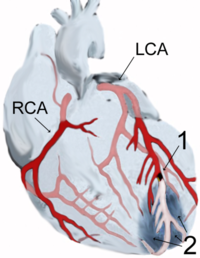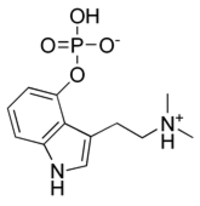Meaning and Resilience

“If architects want to strengthen a decrepit arch, they increase the load that is laid upon it, for thereby the parts are joined more firmly together. So, if therapists wish to foster their patients’ mental health, they should not be afraid to increase that load through a reorientation toward the meaning of one’s life.”
–Viktor E. Frankl (Austrian Psychiatrist, 1905-1997)

Writing and Rewriting Your Own Life Story

I had the privilege of being on the Donna Seebo show yesterday. And when I say that it was a privilege, it really was. It is not often that I find someone who so fully understands the power of an Integrated approach to health and medicine. Toward the end of the call an interesting question came up about the value of journal writing in healing. I am a firm believer in it, I recently reviewed a terrific book by Sheppard Kominars on the topic and I have published a reading list on Amazon.
There is some empirical research to show that journal writing can improve our physical and mental health (1, 2, 3, 4). Why should this be?
One of our most fundamental and enduring needs is to tell people our stories. And even more than that: to leave our stories as the records of our lives. Our stories define us. They are the vehicles of meaning and they serve as the narrative of our views about our world and ourselves. And our stories create our legacy. We all constantly tell stories that shape virtually every human activity from our emotions to our personal relationships and our politics.
It has clear evolutionary advantages to be able to tell good stories, not only for social cohesion, but also as a device to pass on wisdom. But perhaps most of all, storytelling is a device to help us make sense of the world about us.
Jerome Bruner has indicated that children acquire language in order to tell the stories that are already in them. We learn through story telling. The brain breaks down when we no longer manage to make sense of the world around us. Patients with schizophrenia seem to lose the ability to tell a coherent story about themselves or about the world around them.
I am reminded of the tragic letter written by Dimitri Koesnikov, the young Russian submariner on the Kursk who continued to write a letter to his wife, even when he knew that death was inevitable, or the passengers on the Japanese jet liner that crashed in 1985. As the plane went down, people were writing letters. Or people in the Warsaw ghetto who wrote letters and poems even when they knew that they only had minutes to live.
Writing our stories introduces another dynamic: most of us find that putting out thoughts and feelings down on paper helps to give us mental and emotional clarity. Writing helps us to express our individuality and to make connections with others.
Our memories are not just videos of our life events; they are dynamic and malleable and are constantly being edited. So we can change our stories, and with that, remove some of the restrictions that they have imposed upon us. This is not an invitation to enter into a fantasy world or to start lying to yourself or to other people, but is instead an incredibly valuable tool to clear some of the blocks I our lives.
It is a good practice to think through your stories every day. If you care to write about them, that is even better. We need to answer the question: “What are the stories that have defined who you are and how you act?”
When we think about our relationships, isn’t it true that the ones that matter the most and have the most emotional charge attached to them are those in which our stories are intertwined? How often have you met an old friend, after a gap of many years, and found that you no longer have much to talk about, because your stories have diverged so far? How many people maintain family relationships even when their respective stories have nothing in common? Maintaining a relationship out of duty is unfair and disingenuous. Either the stories need to be repaired, or the relationship is doomed.
As an exercise, I would like you to examine some of the dominant stories that have determined some of your personality and your character. And I would then like you to write a brief story about how you would like your life to be.
To help you get started, let me make some suggestions:
• What is your favorite type of story?
• What is the first story about your family that you remember hearing?
• What are your favorite stories about yourself as a child?
• What are your favorite stories about yourself as an adult?
• Who are the key characters in your life story?
• How many of the key characters know each other?
• Does your life story have a plot line?
• Could you create a better one?
• What stories would you like others to tell about you?
• How would you like your story to end?
I would love to have some feedback if you find this helpful.
“A man’s mind is hidden in his writings; criticism brings it to light.”
–Solomon ben Yehuda ibn Gabirol (Spanish-Hebrew Poet, Neoplatonist Philosopher and Mystic, c.1021-c.1058)
“Writing is a form of therapy; how do all those who do not write, compose, or paint manage to escape the melancholia, the panic and fear which is inherent in the human condition?”
–Graham Greene (English Writer, 1904-1991)
The Horse, The Farmer and Silver Linings

I was talking to someone who has recently had a series of apparent mishaps in his life. And yet every one of them has so far turned out to have a silver lining,
I made the point to him that if we do indeed live in a meaningful, purposeful Universe, then we also have to accept that we cannot always see the reasons why thing happen. Certainly some things may happen “by chance,” but most events that involve conscious thought cannot be explained away as “chance” or “coincidence.”
It reminded me of a story that has been told and retold around the world in different forms since the dawning of time. I like this version from China:
“There was a wise old farmer whose horse ran away. All the neighbors came to commiserate and say, “That’s bad.”
But the farmer said, “Perhaps.”
Then the next day, the horse came back with a whole herd of wild horses, and the neighbors all said, “That’s good.”
And the old farmer said, “Perhaps.”
The very next day the farmer’s son broke his leg trying to tame one of the wild horses and the neighbors said, “That’s bad.”
And the old farmer said, “Perhaps.”
Just after the son broke his leg, the army came through and drafted all the young men and took them off to war. But they left the farmer’s son because his leg was broken.
All the neighbors said, “That’s good” to which the wise old farmer simply said, “Perhaps.”
“But there is suffering in life, and there are defeats. No one can avoid them. But it’s better to lose some of the battles in the struggles for your dreams than to be defeated without ever knowing what you’re fighting for.”
–Paulo Coelho (Brazilian Writer, 1947-)
“Every human life had its pattern that had to be worked out slowly to its ultimate conclusion.”
–Irving Stone (American Writer, 1903-1989)
“Man has come here with a definite purpose. Life is not meant merely for eating drinking and procreating.”
–Sri Swami Sivananda (Indian Physician and Spiritual Teacher, 1887-1963)
“There are no mistakes, no coincidences. All events are blessings given to us to learn from.”
–Elisabeth Kübler-Ross (Swiss-born American Psychologist, 1926-2004)
“You cannot discover the purpose of life by asking someone else – the only way you’ll ever get the right answer is by asking yourself.”
–Terri Guillemets (American Writer, 1973-)
“You have a purpose only as long as you are not complete; until then, completeness, perfection, is the purpose. But when you are complete in yourself, fully integrated within and without, then you enjoy the Universe; you do not labor at it.”
–Sri Nisargadatta Maharaj (Indian Spiritual Teacher and Exponent of Jnana Yoga and Advaita Doctrine, 1897-1981)
Empowerment

It is sometimes frustrating to see peoples’ medical problems reduced – incorrectly – to a single factor. Worse yet, failing to see that all the systems of the body, the mind, our relationships, environment and spirituality all have a part to play in the maintenance of our health and the treatment of disease.
I grew up in England and benefited from and then trained and worked in the National Health Service. Which is nothing of the sort: it is a disease management service.
The problem lies not with money or inefficient systems, but with an emphasis on management rather than prevention of disease.
The next revolution in healthcare is not being driven by science and technology, but by empowerment: being given the tools for taking personal responsibility for our own health and well-being.
Not just so that we feel better and may have the chance of avoiding costly medicines, but so that we can grow as individuals.
The ultimate goal of any form of personal development, of psychotherapy and indeed of medicine, is to remove restrictions from people.
Freedom unlocks human potential.
We are inundated with information about health. Much of the information is confused and confusing. Integrated Medicine is based on the idea of integrating different approaches and integrating the different parts of a person and all of his or her relationships form cell to soul.
The key to that is understanding how to fit all the pieces together, whether a person is a Buddhist or a Baptist, a meat-eater, vegan or junk food addict. To be able to answer these kinds of questions:
- What diet is right for me personally?
- What type of exercise should I do at my age, level of fitness and time constraints?
- How can I get the quality sleep that I need with all the demands on my time?
- How can I manage the stress in my life?
- How can I manage my emotions so that I run them instead of them running me?
- How can I have satisfying connections with other people?
- How can I find my meaning and purpose in life?
The good news is that we already have answers to most of those questions and we have developed hundreds of tips and techniques that people can do in minutes a day.
I revealed some in the book and CD series Healing, Meaning and Purpose, and in response to a great many requests, I shall be sharing many of these techniques in the months to come.
“Health is a state of complete harmony of the body, mind and spirit. When one is free from physical disabilities and mental distractions, the gates of the soul open.”
–B.K.S. Iyengar (Indian Yoga teacher, 1918-)
“If we could learn how to balance rest against effort, calmness against strain, quiet against turmoil, we would assure ourselves of joy in living and psychological health for life.”
–Josephine L. Rathbone (American Sports Physiologist and Pioneer in Health and Relaxation, 1899-)
“Personal transformation can and does have global effects. As we go, so goes the world, for the world is us. The revolution that will save the world is ultimately a personal one.”
–Marianne Williamson (American Author, Unity Church Minister and Lecturer on Spirituality, 1952-)
“Questions focus our thinking. Ask empowering questions like: What’s good about this? What’s not perfect about it yet? What am I going to do next time? How can I do this and have fun doing it?”
–Charles Connolly (American Psychologist)
The Quest for Meaning

Yesterday I had the privilege of doing an interview with Michael Dresser on HealthRadio.Net. If you have not yet discovered them, I highly recommend the organization. I have put a link to them in the “Shared Visions” section on the left hand side of this blog. If you have any interest in health, there are a huge number of extremely interesting shows and free podcasts.
Having done radio and TV shows in around twenty countries, I can tell you that interviewers come in all shapes and sizes! Michael was very good: quick on the uptake and clearly committed to improving the welfare of his listeners. We did not agree on everything, but an interview where both people stroke each other, is not going to be much help to anyone!
Michael started by saying that the topic of Healing, Meaning and Purpose could easily have filled a three-hour show and he was right. After all, it took me 35 years to write that book. Well, getting it down on paper took eight weeks, but it had taken years of experiment and experience, and the input of thousands of people to get it right.
We decided to focus on meaning. A little tricky to do in 25 minutes, given that over a quarter of Healing, Meaning and Purpose is dedicated to the precise steps for discovering meaning in your life!
Michael expressed his concern about the large numbers of people who live without a feeling of meaning in their lives. And indeed there are huge numbers of people, particularly those who have lost their religious faith or who suffer from chronic illnesses, who find it very hard to find a sense of meaning in their lives.
Many reductionist writers and scientists don’t help when they tell us that we live in a dead, empty, meaningless Universe. They could not be more wrong!
Human beings are the consummate meaning generators in the Universe. Meaning provides context, and from context flows the real richness of life. Meaning fuels the alchemy that can transform an event into an experience. Parables and myths make deep meanings accessible.
The work of the Austrian psychiatrist and Holocaust survivor Viktor Frankl has quite rightly become popular in recent years. He observed that people in concentration camps who had a reason to survive did so. He felt that it was important for people to commit to meaningful goals and values, and to be constantly aware of the meaning in all things. He also emphasized the importance of extending ourselves, to becoming more than we are now. This is one definition of the transpersonal or spiritual domain. Frankl saw mental health as deriving from ultimate meaning, or spiritual values.
The real meaning of freedom is the ability to choose how you will react in response to any situation. You choose the way to think about a problem; you establish your point of view and your way of behaving. It saddens me that so many people whom I see function “on automatic:” They live in a world of habitual responses. As long as you are concerned about what others think and say, you are responding and will never be free. You can be different. So why is it that for so many people life seems to have no meaning?
The main reasons for this sorry state of affairs are disconnection, separation and alienation on the one hand, and being reactive rather than reflective. This can be disconnection and separation from ourselves, from each other, from the world, from understanding our place in the world or from our Higher Self. If we react out of habit and assumption we can really fail to smell the roses. The problem of meaninglessness was never so serious when everyone knew exactly what they were supposed to be doing and they had a clear set of duties and responsibilities.
For many of us our life story has become garbled and inconsistent. Sometimes the simple act of re-writing our life stories can help enormously. In the CDs and the last book I talk a lot about how to do that.
In recent years many people have started talking about “Diseases of Meaning,” a term that was, I think, first introduced by my old friend Kim Jobst.
Most of us think of health and disease as a dichotomy, as two sharply different states. But in reality, health and disease are part of a duality of healthy functioning. As with the other dualities that we have looked at, each contains the other, each is necessary for the other, and each gives rise to the other. Disease is a healthy response of an organism striving to maintain its equilibrium in the face of disruptive forces, like negative thoughts, unbalanced relationships, environmental toxins, poor nutrition, and so on. Disease can initiate a process of transformation; it has meaning. And instead of being brought low by a feeling of powerlessness, this realization can help people become stronger, to live more fully and with more understanding. This way of looking at disease can be applied to any of the chronic illnesses, and even to environmental problems like community violence. Understanding a disease for what it is can be empowering, and even transformative.
Sometimes people who feel meaningless do need professional help and there are forms of therapy designed to help us find meaning. And sometimes the sense of meaninglessness is actually a symptom of an illness such as depression.
But for people who just need to clarify and feel the meaning in their lives there are sets of techniques that we have been using for over twenty years. Here are a few that are all rooted in empirical scientific studies:
- Writing and re-writing your own life story
- Questioning your assumptions about life and about relationships
- Using a brief pause before reacting to anything that happens to you
- Creating meaning through making decisions about your life
- Developing a sense of coherence
- Forming and strengthening relationships
- Techniques for giving people a glimpse of a transcendent reality
- Developing a legacy
It turns out that Michael Dresser and I had another thing in common. He also eradicated a very serious illness using an early form of Integrated Medicine. For both of us, the experience was highly meaningful and gave us a new and sharper focus: to show other people how to care for themselves and their families and how to enhance the quality of their lives.
We are both walking the talk.
“The least of things with a meaning is worth more in life than the greatest of things without it.”
–Carl G. Jung (Swiss Psychologist and Psychiatrist, 1875-1961)
“Deep within himself man seeks meaning for his life, and tries to fulfill himself in accordance with that meaning.”
–Viktor Frankl (Austrian Psychiatrist, 1905-1997)
“When we understand that man is the only animal who must create meaning, who must open a wedge into neutral nature, we already understand the essence of love. Love is the problem of an animal who must find life, create a dialogue with nature in order to experience his own being.”
–Ernest Becker (Canadian Cultural Anthropologist and Interdisciplinary Thinker, 1925-1974)
“So many people walk around with a meaningless life. They seem half-asleep, even when they’re busy doing things they think are important. This is because they’re chasing the wrong things. The way you get meaning into your life is to devote yourself to loving others, devote yourself to your community around you, and devote yourself to creating something that gives you purpose and meaning.”
–Morrie Schwartz (American Educator and the subject of the book Tuesdays With Morrie, 1916-1995
“Any important disease whose causality is murky, and for which treatment is ineffectual, tends to be awash in significance.”
–Susan Sontag (American Essayist, 1933-2004)
“What truly gives life meaning is to work with the light and for the light, without worrying about pleasing or displeasing others.”
–Omraam Mikhaël Aïvanhov (Bulgarian Spiritual Master, 1900-1986)
Heart Attacks, Meaning and Relationships

I am a doctor who has spent my career trying to empower people to take control of their lives, to fulfill and exceed their potential and to achieve and maintain vibrant good health. So I have worked my backside off to help people to deal with disease. But the curing of maladies is only half of our task. We also need to learn why things go wrong and what they are trying to teach us. So many of us have become wedded to the idea that illnesses are nuisances to be conquered rather than inevitable parts of life that can help us to grow and develop.
If our search just keeps turning up negatives, “I keep getting sick because I have bad luck/was born under a bad sign/have bad karma,” then you may need a little help from a therapist to help with those negative cognitions.
Here is a remarkably interesting study published in the current issue of the Journal of Advanced Nursing, that buttresses years of my own clinical observations: A third of people who suffer myocardial infarctions (heart attacks) discover new meaning to their lives and reconnect with their partner, but others see it as a threat to their well-ordered existence.
Researchers from Switzerland and the United States explored the experiences of 24 couples to see whether the one of them having had a heart attack changed their lives and their relationships. According to the researchers, three distinct behavioral patterns emerged as people tried to cope with a person’s heart attack:
Some said that the heart attack was an important and necessary event which had brought them closer together and transformed their lives.
Others felt fearful and threatened by the fact that they had no control over an unpredictable future.
The last group looked at various possibilities for positive change as a result of the heart attack. But they did not achieve them and felt that they had missed their chance to make things better.
It would be easy to pass off the people in the first group with the positive responses as “rationalizers:” people who are trying to make the best of a bad situation. But that would be a mistake. Severe, particularly life-threatening illness can often have a transformative effect on people an those around them. The key is to provide them with positive psychological and spiritual support.
This research strongly reaffirms the principle that successful recovery from a serious illness means more than eradicating it. It really means dealing not just with the physical, but also the psychological, social, subtle and spiritual aspects of what has happened.
In a cardiac rehabilitation program, if a person is in a stable relationship, it is essential to involve both partners in the program so that support can be tailored to their own individual relationship.
The lead researcher was Dr Romy Mahrer-Imhof, from the Institute of Nursing at the University of Basel in Switzerland, and she had this to say, “For example, counseling could provide these couples with more choices about how to negotiate more intimacy in a relationship in which each partner’s needs and wants are respected…. Group session are also useful as they show people how other couples deal with similar situations, helping them to conquer fear and find new ways of living, despite the illness.”
One of the reasons that I’m so militant about aggressive rehabilitation and involving the family is this. As a very young freshly minted doctor, I was involved in the care of a man who suffered from a very small heart attack at the unusually early age of 28. He made an uneventful physical recovery, but announced to his family that he would never work again, and that sexual intimacy or any other kind of physical activity was now out of the question for him. Overnight, he had become a needless cardiac cripple. As he left the hospital he refused to get dressed in regular clothes, but instead wore pajamas and a bathrobe. He shuffled along like an old man despite the fact that his exercise tolerance was probably as good as mine. He refused all offers of help, would not go to rehabilitation and refused to see a psychologist or counselor. Despite the fact that his heart had recovered completely, he died within a year.
Nobody could have forced him into having treatment, and as a newly qualified doctor I was only the team tadpole.
But if I’d known then what I know now, I doubt that he would have had such a sad outcome.
Enabling the re-integration of the whole person – body, mind, spirit, subtle systems and relationships – is the central core of Integrated Medicine and Healing, Meaning and Purpose.
“No man is an Island, entire of it self; every man is a piece of the Continent, a part of the main; if a clod be washed away by the sea, Europe is the less, as well as if a promontory were, as well as if a manor of thy friends or of thine own were; any man’s death diminishes me, because I am involved in Mankind; And therefore never send to know for whom the bell tolls; It tolls for thee.”
–John Donne (English Metaphysical Poet and Divine, 1572-1631)
“Deep within himself man seeks meaning for his life, and tries to fulfill himself in accordance with that meaning.”
–Viktor Frankl (Austrian Psychiatrist and Holocaust Survivor, 1905-1997)
“When we are motivated by goals that have deep meaning, by dreams that need completion, by pure love that needs expressing, then we truly live.”
–Greg Anderson (American Author and Founder of the Cancer Conquerors Foundation, 1947-)
“Love is the ultimate meaning of everything around us”
— Rabindranath Tagore (Indian Poet, Playwright, Essayist, Painter and, in 1913, Winner of the Nobel Prize for Literature, 1861-1941)
RP On The Radio Part Deux

I mentioned that Kim Colvard and I were going to be having an online discussion. We covered a lot of topics and we’ve had some great feedback.
We are definitely going to do this again!
You can download the file here.
Enjoy!
Psilocybin and Mystical Experience

The Psilocybin Molecule
We have discussed mystical experiences a couple of times recently. They are important not only because of what they may teach us about altered states of consciousness, but because they may contain genuine revelations about the nature of reality and they are invariably profoundly meaningful to the person having them.
Earlier this year there was a paper that seemed to come in under some people’s radar, though several heavyweights in the world of psychopharmacology spoke approvingly of the research.
The paper was entitled, “Psilocybin can occasion mystical-type experiences having substantial and sustained personal meaning and spiritual significance.” There are also some superb commentaries on the original paper, all of which are available for free download if you click on the links above.
So what got everyone so excited?
Psilocybin is a psychedelic alkaloid that has been used for religious purposes for centuries. The researchers conducted a double-blind study on the acute and longer-term psychological effects of a high dose of psilocybin. What was particularly important was that the 36 experimental subjects had no previous experience of hallucinogens but who were regularly participating in religious or spiritual activities.
It is also important that the experiments were performed in comfortable, supportive surroundings. The last thing that anyone wanted was for people to have a “Bad trip” and to be left without care and support.
They were given psilocybin and methylphenidate (Ritalin) in separate sessions, the methylphenidate sessions serving as a control and active placebo; the tests were double-blind, with neither the subject nor the administrator knowing which drug was being administered. The degree of mystical experience was measured using a questionnaire on mystical experience developed by Ralph W Hood.
61% of subjects reported a “complete mystical experience” after their psilocybin session, while only 13% reported such an outcome after their experience with methylphenidate. Two months after taking psilocybin, 79% of the participants reported moderately to greatly increased life satisfaction and sense of well-being.
About 36% of participants also had a strong to extreme “experience of fear” or dysphoria (eg, a “bad trip”) at some point during the psilocybin session (which was not reported by any subject during the methylphenidate session), with about one-third of these (13% of the total) reporting that this dysphoria dominated the entire session. These negative effects were reported to be easily managed by the researchers and did not have a lasting negative effect on the subject’s sense of well-being.
The observation that psilocybin reliably elicits a transcendent, mystical state tells us that investigations of these drugs may help us understand molecular alterations in the brain that underlie mystical religious experiences.
But the key point to be made is that finding a biochemical basis for mystical experiences does nothing to belittle them. The biochemical and neurological approaches have nothing to say about the personal meaning and the cultural and social components of the experience. To use Ken Wilber’s terminology, this research is only addressing the Upper Right Hand Quadrant.
Important work to be sure, but it would be a mistake to try to reduce mystical experiences to 5HT2A,C receptors alone.
“For what is Mysticism? It is not the attempt to draw near to God, not by rites or ceremonies, but by inward disposition? Is it not merely a hard word for ‘The Kingdom of Heaven is within’? Heaven is neither a place nor a time.”
Florence Nightingale (English Pioneer of Nursing Known as the “Lady with the Lamp,” 1820-1910)
“The mystical life is the centre of all that I do and all that I think and all that I write. …I have always considered myself a voice of what I believe to be a greater renaissance – the revolt of the soul against the intellect.”
— William Butler Yeats (Irish Poet, Dramatist, Writer and, in 1923, Winner of the Nobel Prize in Literature, 1865-1939)
Irritable Bowel Syndrome, Mood Disorders, the Serotonin Transporter and Integrated Medicine
Whenever we run into two common conditions, it’s easy to imagine links where none really exists. Three years ago some colleagues from Oxford reported on a person with bipolar disorder and irritable bowel syndrome, and commented that the association was uncommon.
However there may after all be a genuine link between mood disorders and irritable bowel syndrome, that is a disturbance in the “third arm” of the autonomic nervous system. The first arm is the sympathetic nervous system, the second the parasympathetic and the third is the enteric or gut nervous system that is closely linked with key regions of the brain.
Not long ago there was an interesting report of a woman who had multiple problems including environmental allergies, atypical bipolar disorder, irritable bowel syndrome and Raynaud’s phenomenon. Such odd constellations of problems are quite familiar to anyone working in the major referral centers around the world, and some can be exceedingly hard to treat. Tough cases like this often stimulate further research. I once tried and failed to treat a woman with a chronic illness. When she came back a year later to see if I had any new ideas, I told her that I now had a shelf of books and over a thousand reprint of papers about her condition: I don’t like failing someone. And I’m not unique in that.
A new study from the Karolinska Institute in Stockholm, has found that chronic widespread pain, which, as I explained recently, is the cardinal symptom of fibromyalgia, is prevalent and co-occurs with other symptom-based conditions such as chronic fatigue syndrome, joint pain, headache, irritable bowel syndrome, and psychiatric disorders.
There is more and more evidence of a link between fibromyalgia, irritable bowel syndrome and depression. It is not just that people are sick and get depressed: as we shall see in a moment, the link is more subtle than that. Another illness seemingly linked to these three is interstitial cystitis.
Now some colleagues at the National Institutes of Health have been looking at a serotonin transporter (SERT) that regulates the entire serotoninergic system and its receptors. This transporter is found throughout the animal kingdom, telling us that it must be important.
In humans the gene is located on chromosome 17, and disturbances in it have been found in people with autism, ADHD, Tourette’s syndrome and bipolar disorder. Experiments using genetic engineering suggest that SERT may be a candidate gene for several human disorders, from obesity to irritable bowel syndrome. People who have disturbances in SERT tend not to respond so well to the serotonin reuptake inhibitors (SSRI’s) antidepressant medicines.
SERT is not the whole story. Some geneticists from Los Angeles have found evidence linking irritable bowel syndrome, depression, migraine and inheritance of mitochondrial DNA.
Many approaches have been tried to help people with these groups of problems. I always find it remarkable that psychological treatments can be so effective in conditions with a genetic component, for this once again proves that biology is not destiny.
The best approaches to conditions like irritable bowel syndrome and coexisting mood disorders is to use medications and psychological approaches. Many of us have also found that the addition of nutritional, environmental and subtle energetic approaches have been of great help, together with some work to uncover the meaning and transpersonal value of a chronic illness. That last piece is not the first priority, which is to help the person gain control of his or her life. But if we don’t do something to work with the meaning and purpose of an illness, it will usually come back in some form or other. This comprehensive approach differentiates Integrated Medicine from many other types of therapy.
Resilience, Misfortune, and Mortality

Much of the development of the ideas of Integrated Medicine has been driven by the idea that a truly effective holistic medicine does not simply integrate different modalities to achieve health and wellness, but is also aimed at integrating all the different aspects of a person into a coherent whole. That was the real reason for choosing the term “Integrated” medicine in the United Kingdom, though “Integrative” and “Integral” medicine are ultimately all aiming for the same thing.
This is quite different from simply adding some acupuncture, an herb or some relaxation therapy to a conventional medical program. Its aim is not so much getting someone better, as to give the whole person – physical, psychological, social, subtle and spiritual – what he or she needs to be able to get themselves back on an even keel, so as to be able to deal with future challenges as they arise. And not just deal with them, but to use challenges as springboards to growth and development.
The whole idea of this system of medicine included an extra dimension that had often been left out: the interaction between the person in trouble and the practitioner. We are social animals, but even more than that it looks as if we are highly interconnected from cell to soul. We have to take into account the impact of a therapeutic interaction on the clinician, as well as the influence of the clinician’s psychological, subtle and spiritual makeup on the individual.
The development of this system of medicine had many parents. One was the American-born Israeli sociologist Professor Aaron Antonovsky who first generated the idea of salutogenesis: the study of the factors that support human health and wellness. He was one of the first to show that people who were relatively unstressed were far more likely to be able to resist illness, compared with stressed people. His interest was not just in what causes disease, but what are the roots of health.
He returned to and discussed, developed and applied an idea that had been around since the work of Sigmund Freud and Roberto Assagioli: that was that our experience of well-being constitutes a Sense of Coherence (SOC). He defined the sense of coherence like this:
“A global orientation that expresses the extent to which one has a pervasive, enduring though dynamic feeling of confidence that one’s internal and external environments are predictable and that there is a high probability that things will work out as well as can reasonably be expected.“
Two recent studies seem to indicate that this concept of coherence is fundamentally correct.
Researchers in Cambridge in the United Kingdom have reported a population-based cohort of 20,921 men and women completed a postal assessment of their lifetime experience of specific adverse events and a measure of their sense of coherence. Those with a weak SOC reported significantly slower adaptation to the adverse effects of life experiences, compared with those with a string SOC, and were more likely to die prematurely. Although the size of the effect was not large, the results suggest that SOC is a potential marker of an individual’s adaptive capacity to deal with social stress, which is predictive of mortality
The second study was a systematic review from Finland. I like the way in which the study was done, and it came to this conclusion:
“SOC seems to be a health promoting resource, which strengthens resilience and develops a positive subjective state of health. Salutogenesis is a valuable approach for health promotion.”
So what does this mean for you?
Developing a sense of coherence is a most critical factor in creating and maintaining robust health and ability to adapt to change, be it in health, stress, your relationship or at work.
How do you do that? Healing, Meaning and Purpose spends over a hundred pages or several CDs explaining the most up to date ways of doing exactly that using a process known as Creative Self-Integration.
I do hope that you take the opportunity to sample some of the techniques for yourself.






